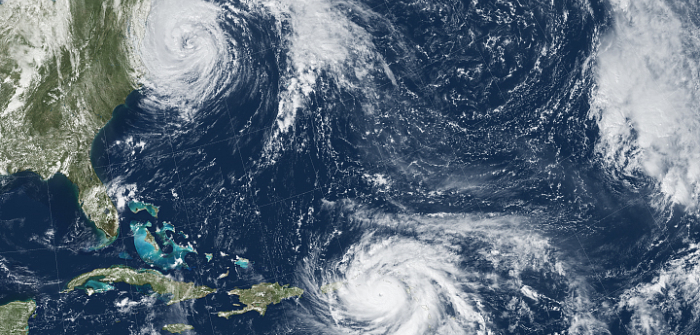The UK’s Royal Meteorological Society (RMS) has released abstracts for the topics to be covered in its upcoming series of online Meteorological Masterclasses, intended to provide training for professionals working in meteorology and climate science.
The first class will take place on September 16 and is to be hosted by Helen Dacre, a lecturer in dynamical meteorology at the University of Reading, whose presentation will give a review of synoptic extratropical cyclone research, starting from conceptual diagrams of the Bergen school in the 1920s. Careful analysis of multiple surface observations allowed the Norwegian scientists to deduce the existence of cold and warm fronts and to characterize a complete cyclone lifecycle. Since then, new observing systems and advances in computers have enabled the scientific research to expand and enrich our knowledge of extratropical cyclone structure and evolution.
The class will also look at the active areas of extratropical cyclone research, including analysis of sting jets, cyclone clustering and atmospheric rivers. Dacre will discuss the remaining gaps in our knowledge, particularly regarding synoptic and mesoscale features associated with moist processes and their influence on predictability.
The second class will take place on September 30, hosted by National Centre for Atmospheric Science (NCAS) professor of climate science Len Shaffrey, also of the University of Reading, and will focus on understanding and predicting how extratropical winter storms might respond to climate change, which is essential for assessing future weather risks and informing climate change adaptation strategies.
Finally, on October 14, Robert Lee, an NCAS research scientist from Reading, will cover subseasonal predictions for European winters. The presentation will look at key aspects related to subseasonal predictions of winter weather for the European region, including sources of predictability, models and forecasting, and applications of these forecasts. The interaction of subseasonal weather with, and its impact on, longer timescales will also be discussed.
These webinars are free of charge and will be held from 3.00pm to 4.30pm with a masterclass presentation followed by the opportunity for questions and discussion with the speaker. The RMS will release abstracts for further presentations later in the year.



